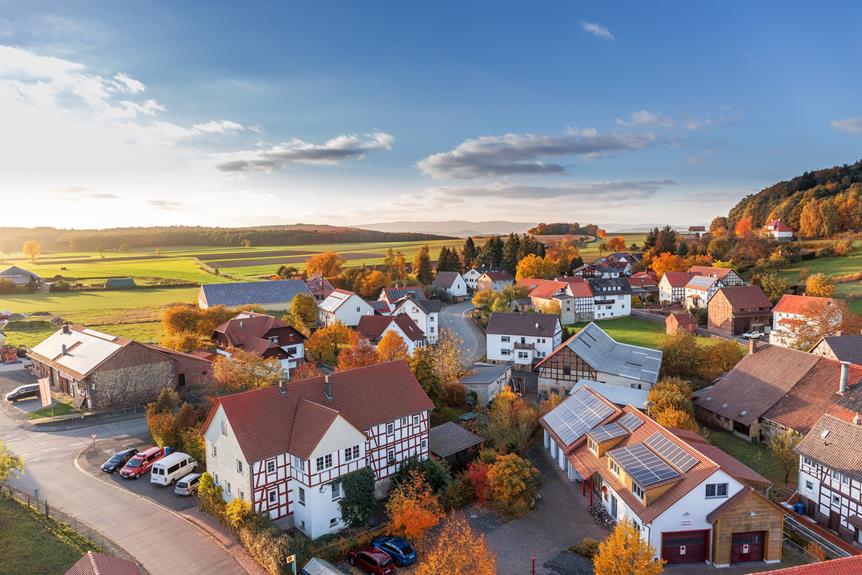Have you ever wondered why sustainable tourism is crucial for local communities? Well, let us enlighten you. Benefits of sustainable tourism is not only stimulating economic growth and creating jobs but also preserving cultural heritage and improving local infrastructure and services.
By empowering local communities and conserving natural resources, sustainable tourism enhances the quality of life for residents and promotes local businesses and products.
Join us as we delve into the myriad benefits of sustainable tourism for local communities.
Economic Growth and Job Creation
One reason why sustainable tourism benefits local communities is because it stimulates economic growth and creates job opportunities. Sustainable tourism practices ensure that the local economy is supported by providing sustainable job opportunities.
According to a study conducted by the United Nations World Tourism Organization (UNWTO), sustainable tourism can contribute to the creation of jobs and income generation in local communities. This is achieved through the development of sustainable tourism infrastructure, such as hotels, restaurants, and tour operators, which require a workforce to operate.
Additionally, sustainable tourism attracts tourists who are willing to spend more on local products and services, thus supporting local businesses and stimulating the local economy. In this way, sustainable tourism not only promotes environmental conservation but also brings about positive local economic benefits, creating a sense of belonging and prosperity within the community.
Preservation of Cultural Heritage
Preservation of cultural heritage is a key aspect of sustainable tourism that benefits local communities.
By engaging in tourism activities, communities can economically empower themselves and generate income through the preservation and promotion of their cultural heritage.
Additionally, sustainable tourism reinforces the local identity and helps communities maintain their unique traditions, customs, and practices.
This, in turn, fosters a sense of pride and belonging among community members.
Economic Empowerment Through Tourism
Our experience shows that sustainable tourism plays a crucial role in economically empowering local communities by preserving their cultural heritage and fostering prosperity. Community engagement and sustainable practices are key components of this process.
When tourists engage with local communities and participate in sustainable practices, it creates a positive impact on the economy. According to a study conducted by the World Travel & Tourism Council, sustainable tourism has the potential to create jobs and generate income for local communities.
Additionally, preserving cultural heritage through tourism helps communities maintain their traditions, customs, and unique identity. This not only fosters a sense of belonging for locals but also attracts tourists who are seeking authentic experiences.
Reinforcement of Local Identity
When we engage with local communities through sustainable tourism practices, it reinforces their local identity and preserves their cultural heritage. Community engagement plays a crucial role in maintaining and celebrating the unique cultural traditions and customs of a destination.
By involving local residents in the tourism industry, their cultural heritage isn’t only safeguarded but also showcased to visitors, fostering a sense of pride and belonging within the community. This engagement can take various forms, such as cultural festivals, handicraft demonstrations, or storytelling sessions, allowing tourists to experience and appreciate the rich cultural tapestry of the community.
Furthermore, sustainable tourism practices contribute to the preservation of historical sites, monuments, and traditional architecture, ensuring that future generations can continue to connect with their cultural past. By valuing and supporting local cultural preservation efforts, sustainable tourism enhances the sense of identity and belonging within the community.
Improved Infrastructure and Local Services
Improved infrastructure and local services are key benefits of sustainable tourism for local communities. Through tourism revenue, destinations have the opportunity to invest in their infrastructure, such as roads, airports, and public transportation systems, improving accessibility and connectivity.
Additionally, local services such as healthcare facilities, schools, and utilities can be enhanced, leading to an overall improved quality of life for residents. These improvements not only benefit tourists but also create long-lasting positive impacts on the local community.
Economic Growth and Development
Sustainable tourism contributes to the economic growth and development of local communities by enhancing infrastructure and local services. This subtopic highlights the importance of economic diversification and poverty reduction through sustainable tourism practices.
- Economic diversification: Sustainable tourism creates opportunities for local communities to diversify their economies by offering a range of tourism-related services such as accommodations, transportation, and food and beverage establishments. This helps reduce dependence on traditional industries and creates new sources of income.
- Poverty reduction: By generating employment and income opportunities, sustainable tourism plays a crucial role in reducing poverty in local communities. It provides jobs for local residents, particularly in rural areas where economic opportunities may be limited. Additionally, revenue generated from tourism can be reinvested in the community to improve education, healthcare, and infrastructure, further contributing to poverty reduction.
- Improved infrastructure and local services: Sustainable tourism encourages investments in infrastructure development, including transportation networks, water and sanitation facilities, and public amenities. These improvements not only enhance the tourism experience for visitors but also benefit local residents by providing better access to essential services and enhancing their quality of life.
Enhanced Quality of Life
Our community’s quality of life is enhanced through the improvement of infrastructure and local services. Sustainable tourism plays a crucial role in this regard, as it supports the development and maintenance of better facilities and amenities for both residents and tourists.
With increased investment in infrastructure, such as roads, bridges, and public transportation systems, the overall accessibility and connectivity of the community are improved. This leads to a more efficient and convenient transportation network, making it easier for locals to commute and access essential services.
Additionally, sustainable tourism contributes to the enhancement of local services, such as healthcare, education, and public safety. This results in an increase in happiness and improved well-being for the community, as residents benefit from better facilities and a higher standard of living overall.
Empowerment of Local Communities
Through collaboration with local stakeholders, we can actively support the empowerment of communities in sustainable tourism initiatives.
Community engagement is a crucial aspect of sustainable development, as it allows local residents to have a voice and actively participate in tourism activities that directly impact their lives. By involving the community in decision-making processes, we can ensure that their needs, interests, and concerns are taken into account.
This not only fosters a sense of ownership and pride among community members but also enables them to shape the development of tourism in their area. Additionally, empowering local communities through sustainable tourism initiatives can lead to increased economic opportunities, improved social well-being, and the preservation of cultural heritage.
Related Post: 9 Best Eco-friendly Tourism Practices for Travelers.
Conservation of Natural Resources
We frequently prioritize the conservation of natural resources in sustainable tourism initiatives, as it allows us to actively contribute to the preservation of our environment. Sustainable practices are integral to minimizing the negative impact of tourism on natural resources and promoting their long-term viability. By implementing strategies such as waste reduction, water conservation, and renewable energy use, we can ensure the sustainability of our operations while minimizing our ecological footprint.
For instance, adopting sustainable practices such as responsible waste management can significantly reduce the pollution of natural habitats and conserve resources. Implementing recycling programs and encouraging guests to minimize waste generation can have a positive impact on the environment. Similarly, promoting water conservation measures like water-saving fixtures and awareness campaigns can help preserve this essential resource.
Enhanced Quality of Life for Residents
To achieve an enhanced quality of life for residents, sustainable tourism initiatives provide local communities with ample economic opportunities and improved social well-being. By promoting responsible tourism practices, these initiatives contribute to the overall well-being of the community, fostering a sense of pride and belonging among residents.
Here are three ways in which sustainable tourism enhances the quality of life for residents:
- Economic growth: Sustainable tourism initiatives generate employment opportunities, stimulating the local economy and reducing poverty rates. This leads to increased income levels and improved living standards for residents.
- Preservation of cultural heritage: Sustainable tourism supports the preservation of local traditions, customs, and cultural heritage. This not only enhances community well-being but also promotes a sense of identity and pride among residents.
- Social integration: Sustainable tourism encourages interactions between tourists and residents, fostering mutual understanding and cultural exchange. This promotes social cohesion and a sense of belonging within the community.
Promotion of Local Businesses and Products
How does sustainable tourism contribute to the promotion of local businesses and products?
Sustainable tourism plays a crucial role in supporting entrepreneurship and promoting local businesses and products. By encouraging tourists to engage with the local community, sustainable tourism creates opportunities for cultural exchange and economic growth.
Local businesses, such as restaurants, shops, and artisans, benefit from increased demand and exposure to a wider customer base. This not only generates revenue but also fosters the preservation of traditional crafts and practices, ensuring their sustainability for future generations.
Additionally, sustainable tourism encourages the use of locally sourced products and services, further stimulating the local economy.
Conclusion
Sustainable tourism brings numerous benefits to local communities. It stimulates economic growth and creates job opportunities, while also preserving cultural heritage and improving infrastructure and services.
Sustainable tourism empowers local communities, conserves natural resources, and enhances the quality of life for residents. Moreover, it promotes local businesses and products.
Through these positive impacts, sustainable tourism not only contributes to the well-being of local communities but also creates a harmonious and mutually beneficial relationship between tourists and residents.




